In the rapidly evolving landscape of the food and beverage, retail, and rapid delivery industries, the integration of software, e-commerce, and APIs (Application Programming Interfaces) into commercial appliances represents a revolutionary opportunity. What was once considered a commodity—such as a standard beverage cooler—can now be transformed into a sophisticated, smart appliance capable of detecting live inventory levels, connecting with local delivery services, and dynamically responding to market demands. This article explores how such advancements can increase gross margins, open new market opportunities, and position companies to lead globally in the intelligent appliances sector.
Traditional commercial appliances, like beverage coolers, are often viewed as simple, utility-driven devices designed solely for cooling and storage. However, by embedding smart technologies—software that monitors inventory in real-time, e-commerce capabilities that connect directly with suppliers and delivery services, and APIs that allow for seamless integration with other systems—these appliances can be elevated to multifunctional assets in the supply chain.
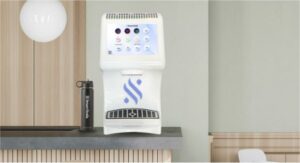
Smart coolers equipped with sensors and software can detect live inventory levels, monitor expiration dates, and even analyze consumer purchasing patterns. This capability allows businesses to optimize inventory management, reducing wastage and ensuring that popular items are always in stock. Retailers can automate restocking processes by integrating with e-commerce platforms or supply chain management systems via APIs, allowing them to reduce manual labor costs and avoid overstocking or understocking issues.
With the increasing demand for rapid delivery, especially in urban markets, smart coolers can connect directly with local delivery services. For example, when an item is running low, the cooler can automatically trigger a reorder and schedule a delivery, minimizing downtime and maximizing sales. This integration can be especially powerful in the quick-service restaurant (QSR) industry, convenience stores, and even in emerging ‘dark store’ models that rely on high inventory turnover rates.
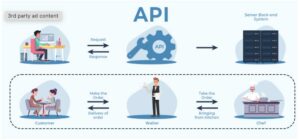
The software embedded within these smart coolers can collect valuable data on customer behavior, including peak purchasing times, preferred products, and more. These insights can help businesses better understand their customers and make data-driven decisions on pricing, promotions, and product placements. Additionally, through APIs, this data can be integrated into broader enterprise resource planning (ERP) systems, enhancing overall business intelligence.
The integration of software, e-commerce, and APIs into commercial appliances creates a new business model that can significantly increase gross margins. Traditionally, gross margins on commodity products like standard coolers are thin due to high competition and low differentiation. However, intelligent appliances offer several ways to enhance profitability:
By transforming a simple cooler into a smart appliance, companies can command a premium price for the added value it provides. Features such as real-time inventory tracking, automated reordering, and seamless delivery integration are highly valued by retailers and service providers. These capabilities not only justify higher upfront costs but also open opportunities for subscription-based revenue models for software updates, data analytics, and service packages.
With smart inventory management, businesses can drastically reduce product wastage due to overstocking or spoilage. This efficiency directly impacts the bottom line, improving margins. Moreover, automated systems reduce the need for manual labor, leading to cost savings in operations and logistics.
The global market for intelligent retail display and cooling systems is growing rapidly. According to recent industry reports, the smart appliance market is expected to grow at a CAGR of over 15% from 2023 to 2030. By investing in R&D to develop these advanced products, companies can tap into new markets, such as quick-service restaurants, urban grocery stores, and even new sectors like healthcare and pharmaceuticals that require precise cooling and inventory management for sensitive products.
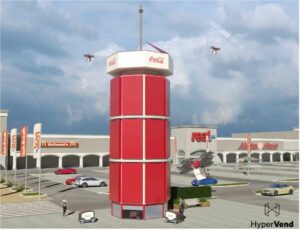
Investing in research and development (R&D) for smart commercial appliances is a strategic move that offers long-term payoffs. The development of integrated software, hardware, and API ecosystems may require significant upfront investment, but the potential returns are substantial:
By targeting high-demand markets and offering differentiated, high-margin products, companies can achieve a rapid payback period on their R&D investment. The potential to monetize through premium pricing, subscription models, and data services further accelerates the return on investment.
Companies that invest early in developing intelligent appliances will position themselves as market leaders. They will have the advantage of setting standards, establishing key partnerships, and creating a strong brand presence in a nascent but rapidly expanding market. The ability to integrate seamlessly with other systems (through APIs) will make their products highly desirable to businesses looking to modernize and automate their operations.
Advanced R&D in software development can incorporate AI and machine learning to predict consumer trends, optimize inventory, and even suggest dynamic pricing models based on real-time data. Such capabilities would further differentiate products in the marketplace, creating a competitive moat and higher customer retention rates.
The food and beverage industry, pharmaceutical sector, and rapid delivery services are increasingly looking for smarter solutions that streamline operations, reduce costs, and enhance customer experience. The integration of smart coolers within these ecosystems opens up several avenues:
Smart coolers can enhance point-of-sale interactions by displaying live promotions, upselling products based on inventory levels, and even interacting with customers through mobile apps. In fast-moving environments like QSRs and convenience stores, these capabilities translate to higher sales and better customer satisfaction.
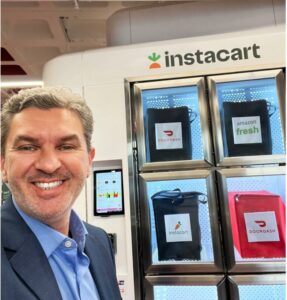
The pharmaceutical industry has stringent requirements for the storage of temperature-sensitive products. Smart coolers that provide real-time temperature monitoring, alert systems, and secure access control can meet these needs, ensuring compliance and safety.
For delivery-focused businesses and dark stores, efficient inventory management and reduced downtime are critical. Smart coolers can become hubs that automate the replenishment process, optimize route planning for deliveries, and ensure that inventory is always at optimal levels, driving faster service and reducing operational costs.
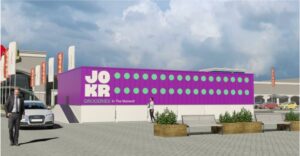
The integration of software, e-commerce, and APIs into commercial appliances represents a transformative opportunity for businesses in the food and beverage, healthcare, and rapid delivery industries. By investing in R&D to develop smart coolers and other intelligent appliances, companies can elevate commodity products, increase gross margins, and position themselves as global leaders in a new and expanding market. As technology continues to evolve, the companies that embrace this trend will reap the rewards of innovation, efficiency, and customer satisfaction, setting a new standard in intelligent retail display and cooling systems.
© 2024 HyperVend, Inc. All Rights Reserved